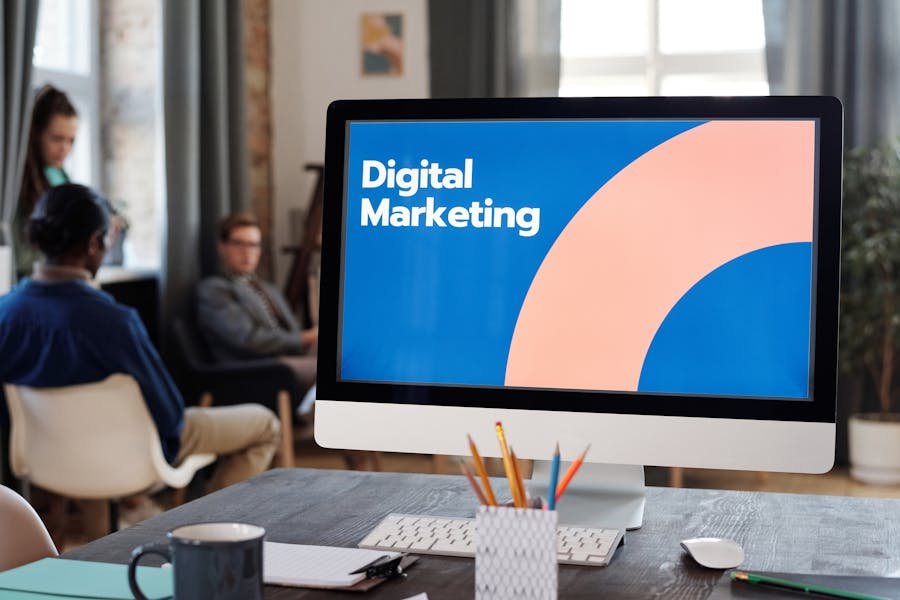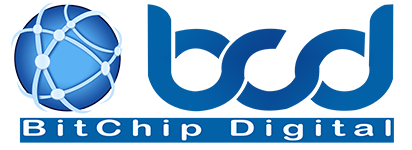
With the advent of rapid change in the digital landscape, in their search for the most effective way of connecting with their audiences, enhancing brand visibility, and ultimately driving conversions, businesses almost always end up testing the waters with two of the most commonly used strategies: content and digital marketing. In many cases, the two terms are conflated, but these strategies are in fact very different in terms of their goal and techniques.
A good grasp of the distinction between content marketing and digital marketing is more than just a matter of semantics: It is quintessential to creating campaigns that engage with the right audience and deliver desired results for the business. The use of content marketing might seek to establish long interest in the brand, while digital marketing identifies opportunities for driving quick results with ads aimed at defined targets; getting it right can make all the difference.
Both strategies are equally important in modern marketing, but the methods they adopt, timelines they use, and outcomes vary widely. For example, while a presentation on AI might do well as a lead magnet in a content marketing campaign, the same presentation could be promoted using paid ads under a far reaching digital marketing campaign. These distinctions are put to good use by companies trying to make the best of their marketing budgets and efforts.
Let us now explore how these two strategies differ from one another, what benefits they provide on their own, and how they can strengthen each other to maximize your brand’s reach and impact.
1. Content Marketing and Digital Marketing
What Do You Mean by Content Marketing?
Content marketing can be defined as a strategic approach to creating and sharing valuable content in order to attract and engage a clearly defined audience. Rather than focusing on direct promotion of a product or service, content marketing seeks to communicate information, educate, or entertain in a manner that gains trust and builds nurturing, long term relationships.
This kind of marketing revolves around stories and connecting with the audience. Content can appear in many formats, including:
Blogs and Articles: Thought leadership pieces, how to articles, and industry news
Videos and Podcasts: Engaging formats that connect on a more personal level
Ebooks and Whitepapers: In depth resources that offer expert opinions
Social Media Content: Such as short form posts, infographics, and user generated content
For example, a fitness brand could publish free guides to working out and nutrition while quietly establishing itself as a trusted authority and funnelling readers toward its premium goods and services.
What Do You Mean by Digital Marketing?
Digital marketing is more wide ranging in meaning, and it comprises every online marketing effort undertaken in support of a brand, product, or service via digital channels. It should be noted that digital marketing includes digital strategies to supplement the slower moving organic audience building schemes of content marketing with paid strategies that seek immediate results and quantifiable measurements of return.
Digital marketing has common practices such as:
Search Engine Optimization (SEO): Ranking entities higher on search engines
Pay Per Click Advertising (PPC): Ads shown on platforms such as Google Ads or social media
Email Marketing: Focused messages that nurture leads or refine them towards sales
Social Media Advertisements: Engage sites such as Facebook, Instagram, and LinkedIn to promote brands
Affiliate and Influencer marketing, which entails a group of third-party celebrities promoting the campaign
The ultimate goal for digital marketing is to drive traffic, generate leads, convert leads into customers, often with a clear return-on-investment (ROI) in mind.
2. The Core Differences Between Content Marketing and Digital Marketing
Strategy vs. Tactics
The very difference lies in the manner they enact business goals; this content marketing is more of a strategy in the long run to reap some amount of brand authority and evoke trust while nurturing customer relationships over a period of time. Success in this respect is not immediate but is built over time as audiences engage with good content.
On the other hand, digital marketing is all about using short-term tactics that should be delivering quick and measurable results. Be it relevant traffic to the site instantaneously for PPC campaign or newsletter signups for flash sale email broadcast, digital marketing is designed to achieve its different objectives at a definite time.
Engagement Approach to Audiences
In terms of engaging audiences, content marketing and digital marketing use different playbooks. Content marketing exists by fostering substantial and profound interactions. The idea here is to educate, inspire, or entertain your audience without selling to them. That’s when engaging audiences brings loyalty to your brand in the form of a helpful resource.
On the other hand, digital marketing may act more directly, often bombarding the audience with marketing messages that urge them to take some immediate action whether clicking on an ad, signing up for a newsletter, or making a purchase.
Accountability Across Channels
There is some overlap between the two strategies, but how they are applied differs:
Content marketing relies mostly on owned channels: blog sites, podcasts, and social media profiles, where the goal is to attract and retain an audience organically.
Digital Marketing pitches paid media like Google Ads and sponsored social media posts that encourage specific actions right away.
For example, a brand could rely on SEO, a digital marketing tactic to increase the discoverability of their blog post-a content marketing asset, thereby showing how the two strategies could work together.
3. Advantages of Content Marketing
Brand Authority and Trust Building
Through content marketing, your brand emerges as a leading authority in its field. By delivering consistent information of real value for an audience with some problems or questions, credibility is established, and trust is built over time. This trust factory influences customer loyalty and word of mouth referrals.
SEO and Organic Traffic Growth
Easily one of the most recognizable advantages of content marketing is its high-ranking abilities. Search engines favor newly minted content full of informative goodness. So the regular posting of articles, blogs, and resources that have been optimized stands in good stead in bringing sites up in search results and doling out organic traffic to them without having to foot the bill for paid ads.
Cost Effectiveness Over Time
Content marketing is going to give you a high ROI in the long run after a lot of initial time and effort. Evergreen content is something that maintains its relevance and merits long after it is produced, and this traffic generation and lead conversion could sell much longer than usual when compared to paid advertisement for content marketing that keeps earning its worth on a constant basis.
4. Benefits of Digital Marketing
Faster ROI and Measurable Results
Digital marketing comes in when industries need results. With tools such as Google Analyzing and social insights, marketers see user behavior, measure the effectiveness of their campaigns, and make adjustments in real time. For paid ads, instances exist where website traffic and leads start within hours of ad launching to be considered fast return promotions.
Wider Audience Reach
Digital marketing lets businesses reach vast and varied audiences across multiple platforms. Be it through social media ads meant for niche communities or search engine ads meant to reach users actively looking for your product, the realms of digital marketing provide targeting like never before.
Flexibility Across Channels
Another big benefit is that digital marketing is flexible. Businesses are able to conduct parallel campaigns on multiple platforms updating SEO, PPC, social media ads, and email marketing to give a multi-channel presence that maximizes exposure and engagement.
5. Best Strategy to Marry Content Marketing and Digital Marketing for Maximum Impact
Rather than choose between content marketing and digital marketing, an integrated approach brings the two to work hand in hand toward the most beneficial outcomes. In this way, strength is lent from each side toward an integrated, streamlined customer journey from awareness through conversion.
Integrated Campaign Strategies
For instance, the same blog post (content marketing) could attract organic traffic if it is actually SEO optimized while paid social media (digital marketing) could gain awareness from another source, a double hit for encouraging engagement.
Lead Nurturing and Conversion Funnels
Where content marketing is good at nurturing leads, digital marketing helps convert them. A prospective customer might first discover your brand from a beneficial blog post and be retargeted later with personalized advertising that further drives them down the sales funnel.
Successful Real World Examples of Integration
Brands like HubSpot and Airbnb have honed this integration. For instance, it employs deep content in the form of blogs and free resources to attract users and combines them with targeted ads and email campaigns to convert those users to paying customers.
Conclusion
While offering a variety of purposes, content marketing and digital marketing are at their prime when applied together. Content marketing creates trust and authority; digital marketing-speedily visibility and conversion. Businesses that learn to balance these two can create holistic marketing campaigns that attract customers and keep them.
The key is in business alignment. Content lets you build a long-term narrative for your brand, while digital gives you an instant shot in the arm for sales. Use both, and you don’t just have hit marketing; you have sustainable business success.
